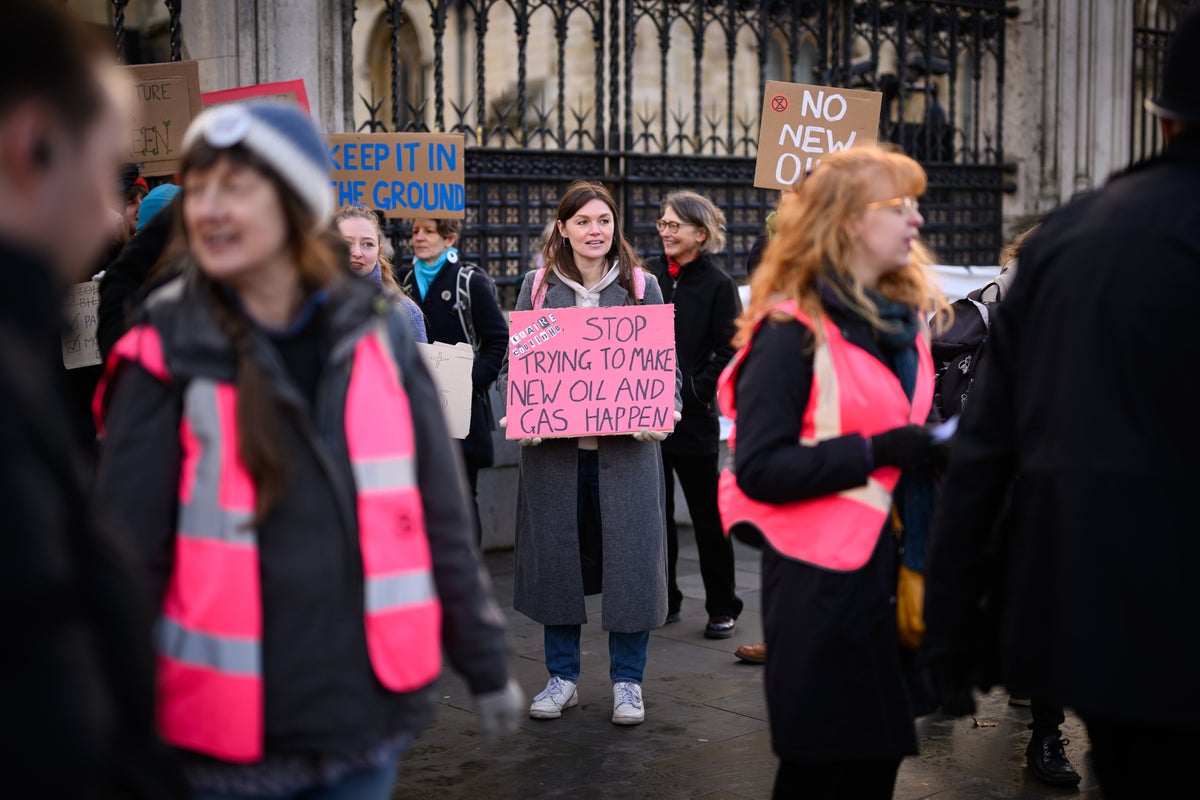
Sign up for the View from Westminster email for expert analysis straight to your inbox
Get our free View from Westminster email
A government crackdown on the right to protest has had a “significant chilling effect” on civil society and the exercise of fundamental freedoms, the UN Special Rapporteur said today.
Michael Forst, the UN special rapporteur on environmental defenders, released a statement following a two-day visit to the UK, where he observed first-hand the treatment of protestors under UK law.
He said after meeting with lawyers, NGOs, climate activists and government officials, he was issuing a statement in “light of the extremely worrying information” he had received regarding the “increasingly severe crackdowns on environmental defenders in the United Kingdom, including in relation to the exercise of the right to peaceful protest”.
Eco-activists and human rights campaigners have protested the raft of anti-protest laws that have been introduced by the government over the last few years
(PA Archive)
Mr. Forst condemned the government’s use of widespread restrictions on peaceful protests, referring to them as “a matter of concern for any member of the public in the UK who may wish to take action for the climate or environmental protection.”
He emphasized, “The right to peaceful protest is a basic human right. It is also an essential part of a healthy democracy.
“States have a duty to facilitate the right to protest, and private entities and broader society may be expected to accept some level of disruption as a result of the exercise of this right.”
The UN expert called for the protection of eco-activism, stating “environmental defenders are acting for the benefit of us all”
(Getty Images)
The UN special rapporteur also highlighted that new rules imposed on defendants in one London court prevented them from explaining their motivations to the jury. In another court, peaceful protesters were forbidden from mentioning the climate crisis, fuel poverty, or even the US civil rights movement in their statements.
“It is very difficult to understand what could justify denying the jury the opportunity to hear the reason for the defendant’s action, and how a jury could reach a properly informed decision without hearing it,” Forst said.
Mr. Forst criticized the Police, Crime, Sentencing and Court Acts, which became law in 2022, as “regressive” and revealed that those charged under this legislation were subject to harsh bail conditions for up to two years.
These conditions included prohibitions on engaging in any further protest, contact with those in their campaign groups, curfews, requirements to wear electronic ankle tags, and GPS tracking. The rapporteur also pointed out that prior to the Act being introduced, it had been “almost unheard of since the 1930s” for peaceful protesters to be imprisoned in the UK.
Mr Forst also condemned the “toxic” discourse around protest in the UK, stating that it “may also be used by the state as justification for adopting increasingly severe and draconian measures against environmental defenders.” Forst spoke out due to the gravity of his concerns about the widespread restrictions on peaceful protest, and says his investigations are ongoing as he considers formal complaints about treatment that have been submitted to him.
The former home secretary Suella Braverman spear-headed the Police, Crime, Sentencing and Courts Act in 2022
(PA Wire)
He concluded: “We are in the midst of a triple planetary crisis of climate change, biodiversity loss and pollution. Environmental defenders are acting for the benefit of us all. It is therefore imperative that we ensure that they are protected.”
He called for a constructive dialogue with the Conservative government to ensure that members of the public seeking to protect the environment were not subject to persecution, penalization, or harassment for doing so.
Appointed by the Human Rights Council of the UN, special rapporteur’s act independently of governments and play an important role in monitoring sovereign nations and democratically elected governments and policies.
The UN special rapporteur is appointed under the Aarhus Convention, to which the UK is a signatory.
✕
Subscribe to Independent Premium to bookmark this article
Want to bookmark your favourite articles and stories to read or reference later? Start your Independent Premium subscription today.
SubscribeAlready subscribed? Log in
Popular videos
{{/link}}

